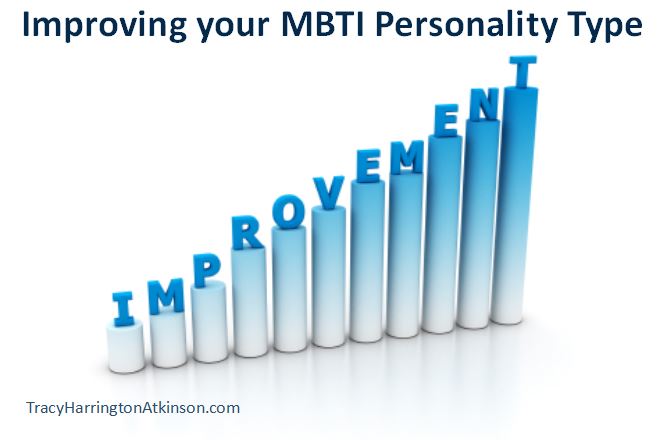 While living abroad, one of my favorite pieces of advice was a simple adage, “Remember the differences in the new culture from your own are not right or wrong, but simply different.” This has stuck with me through decades as I’ve approached life, learning, teaching and relationships.
While living abroad, one of my favorite pieces of advice was a simple adage, “Remember the differences in the new culture from your own are not right or wrong, but simply different.” This has stuck with me through decades as I’ve approached life, learning, teaching and relationships.
Within the Myers-Briggs Type Indicator, it can be a misconception that some personality traits are more valuable or better than others. Maybe a personality type is seen as being better than another, but this is not the case. There are no good or bad types. MBTI identifies preferences within personality types. There are not skills or abilities. Additionally, to improve one’s type is not about changing one’s type but about simply becoming a better individual, improving oneself over time.
ISTJ
Developmental suggestions:
- Pay attention to future consequences of problems and choices as well as the present
- Consider the human consequences of choices
- Try different and fresh alternatives – Change can be good.
- Learn to practice patience with those who are different than you
ISTP
Developmental suggestions:
- Open up to others, try sharing your concerns and problems
- Develop perseverance
- Try planning and following through with a plan
- Develop goals and how to achieve them
ISFJ
Developmental suggestions:
- Work at taking more risks
- Look toward the future with a more positive lense
- Develop assertiveness and be direct
- Toot your own horn – show off your accomplishments
- Try new ways of doing things
ISFP
Developmental suggestions:
- Look at things more skeptically
- Analyze information
- Learn to give negative feedback
- Have a future-oriented perspective
- Be more assertive
INFJ
Developmental suggestions:
- Develop political savviness
- Be more assertive
- Learn to give constructive feedback
- Ask for feedback and suggestions
- Relax and enjoy the present
INFP
Developmental suggestions:
- Learn to work with reality instead of searching for an ideal solution to all issues
- Learn to say no.
- Balance logic with personal values
- Develop, plan and follow through with action items, tasks and goals
INTJ
Developmental suggestions:
- Look for feedback
- Involve others in ideas and strategies
- Look at reality
- Appreciate and show gratitude to others
INTP
Developmental suggestions:
- Focus on practical details
- Develop an action plan to accomplish goals – stick with it.
- Seek the cooperation of others.
- Get to know others.
- Show gratitude
ENTP
Developmental suggestions:
- Pay attention to the present
- Acknowledge others; show appreciation
- Set realistic goals, priorities and tasks
- Know when to stop
ENTJ
Developmental suggestions:
- Look at the human side
- Show appreciation for others
- Take time to reflect.
- Learn to identify and value the feelings of self and others
ENFP
Developmental suggestions:
- Set priorities and follow through
- Pay attention to the details
- Become more dedicated to tasks instead of what is intriguing
- Set time management goals and learn time management skills
ENFJ
Developmental suggestions:
- Realize individuals have limits
- Learn to manage conflict
- Pay attention to details
- Pause the self-criticism and ask for objective feedback
ESFP
Developmental suggestions:
- Look at logical implications to your decisions
- Depersonalize conflict
- Plan ahead, set goals
- Balance work and social times
- Focus on improving time management
ESFJ
Developmental suggestions:
- Pay attention to differences and discover means to manage conflict
- Don’t forget your personal needs and desires.
- Listen objectively
- Look at the results and effects of your decisions on a more logical level.
ESTP
Developmental suggestions:
- Put aside your tasks and focus more on people and their feelings
- Plan ahead beyond a quick fix for a problem
- Complete the current tasks
- Balance work and play
ESTJ
Developmental suggestions:
- Evaluate all options before making a decision including the effect on people
- Try looking at benefits of change
- Show appreciate and gratitude to others
- Take time to reflect on and identify your values
By Tracy Atkinson
 Tracy Atkinson, mother of six, lives in the Midwest with her husband and spirited long-haired miniature dachshunds. She is a teacher, having taught elementary school to higher education, holding degrees in elementary education and a master’s in higher education. Her passion is teaching, researching, studying and enjoying time with her family. She has published several titles, including MBTI Learning Styles: A Practical Approach, Calais, Lemosa, The Art of Learning Journals, The Personal Pursuit of Progress., and The Successful Scholar: Preparation for Higher Education and Lifelong Learning. She also teaches and publishes courses at: Udemy, Teachable or Thinkific.
Tracy Atkinson, mother of six, lives in the Midwest with her husband and spirited long-haired miniature dachshunds. She is a teacher, having taught elementary school to higher education, holding degrees in elementary education and a master’s in higher education. Her passion is teaching, researching, studying and enjoying time with her family. She has published several titles, including MBTI Learning Styles: A Practical Approach, Calais, Lemosa, The Art of Learning Journals, The Personal Pursuit of Progress., and The Successful Scholar: Preparation for Higher Education and Lifelong Learning. She also teaches and publishes courses at: Udemy, Teachable or Thinkific.

Comments are closed